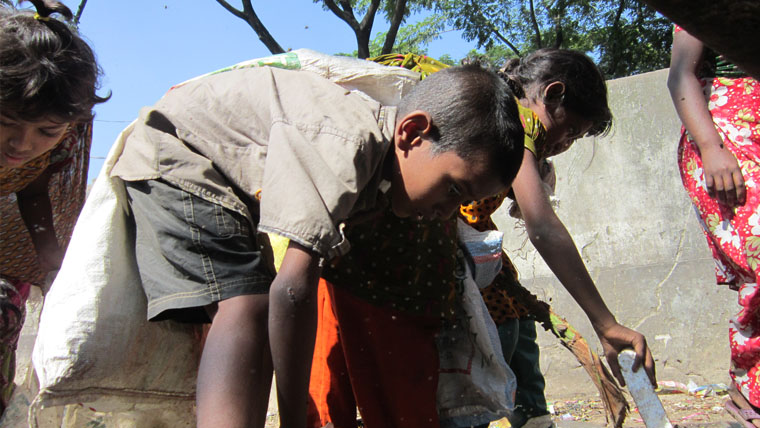Bangladesh: On Progress, Education and How Much There Is Left To Do
After a week out in Bangladesh, today marks the last day of Mathew’s wonderful blogs. If you haven’t already, you might want to read Day 1, Day 2 and Day 3 before this post.
We’ve certainly learnt a huge amount over the last 4 days; we’d love to know what you’ve learnt, what you’ve connected with and what you’ll take away from these posts. Come and find us on Facebook, or leave a comment below.
Here’s Mathew’s final blog:

By Mathew Neville, Director of Public Engagement, World Vision UK
Dhaka: Day 4
Thursday 15th November, 2012
Holding the hand of a child who has just finished picking through rubbish mixed in with faeces is a troubling thing to do in all honesty. Talking to that child about her dreams of being a doctor however, is far more of a problem.
For my final day in Bangladesh I am back in Dhaka, the capital city.
I spent this morning meeting children who live in the largest slum here and experiencing how they spend some of their day. It was tough and difficult to take.
These children work for three to four hours a day and can earn up to 50 taka (about 35 pence). None of them were in school and none of it was right. They carry sticks to sort through the new deliveries and carry sacks on their backs to fill with anything ‘valuable’ they might find – plastics, paper etc.
As we walked around the slum where they live one of my colleagues here asked me an amazing question: “Does England has any slums?” I found this such a strange question, not because he didn’t know, but because he thought to ask – thought that it was such a part of his everyday experience that it might be part of mine.
How can this be right – we are all human beings and yet some of us are living such different lives to the rest of us?
It is estimated that 1 billion people worldwide live in slums and the figure is rising. A slum is an extremely unpleasant place (to put it mildly) and not a place where you would choose to spend any time – let alone a place where you would choose to live. It has only one advantage: it is cheap.
It was hot and difficult to breathe amongst the narrow alleyways where 4000 people work and live out their lives. There were children everywhere and, like children everywhere, they were so happy and excited to see a foreigner. Unlike children everywhere, they were covered in filth and none of them were in school.
World Vision runs an education programme that means they come for two hours a day to learn to read and write. They also come to get clean and be patched up when they hurt themselves or get cut sorting through the rubbish.
The children were doing a writing lesson – little ones learning to write their names and matching the word ‘cow’ to picture of a cow – just like my own children did when they were little.
My children have their dreams as well and by the grace of God they will achieve them – what of these little ones? How can they escape the trap they are in?
This has been a thoughtful end to my time in this amazing country. To see the hope and the transformation that World Vision is achieving in Nawabgonj and then to experience the life of the children today in the slum in Dhaka was a vivid example of how much has been achieved with our supporters help, and yet how much more we have to do.
We’d like to extend a huge thank you to Mathew for being so open and honest about his experiences over the last week. If you’ve been touched by what he’s written, join the discussion on our Facebook page.
If you’d like to know more about sponsoring a child in Bangladesh, click here.